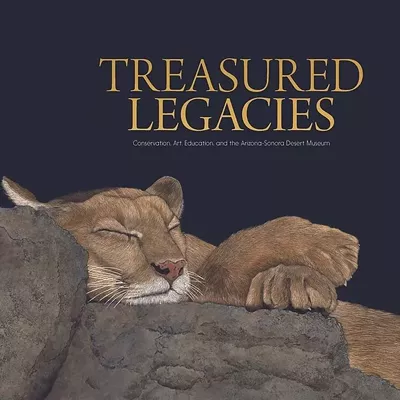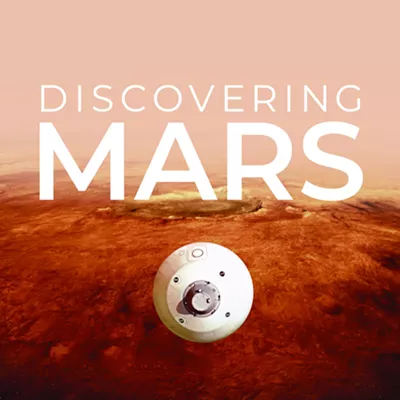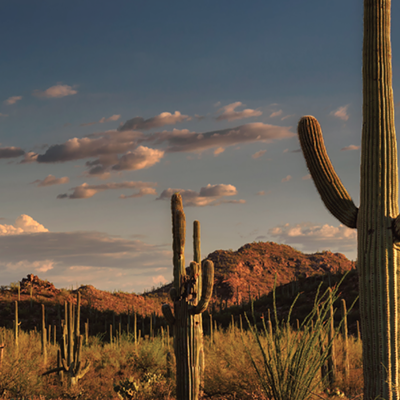AS FANS OF the genre will know, epic works of speculative fiction require a tremendous amount of back story. Every detail must be invented from scratch. Not even the landscape can be taken for granted -- the author has no reference point, and it may be assumed the reader doesn't either.
Authors spend so much time in the gestation of their worlds that the background notes can exceed the work itself in both size and detail. This phenomenon is best known in the publications of Christopher Tolkien, whose annotated books on his father's Middle Earth have achieved 12 weighty volumes, with no end in sight. Less known but still highly regarded is Julian May's A Pliocene Companion, an encyclopedic source book for her cult-classic quartet The Saga of the Exiles.
Though not an invented world, Mars still hasn't felt the footsteps of mankind, and any work that purports to be a future history of its terraforming and colonization will still have to be cut from something very close to the whole cloth. Kim Stanley Robinson's award-sweeping Mars trilogy, comprising Red Mars, Green Mars and Blue Mars, is such a work, and inevitably required the same degree of investment in invention. A series of breathtaking scope and no little heft, Robinson gave birth to a future history as rich as anything a comparably-sized slice of the past has to offer. This is worldscaping at its most comprehensive; not just characters and places, but an entire culture. For an author in this position, the world being made has as much subjective reality as any place you can actually visit, and inevitably there are stories that went into it that deserve publication even if they didn't belong in the book.
Thus The Martians, Robinson's "secret history" of the Mars trilogy. Not in any sense a chronological narrative, it's a stone skipped across the surface of this almost oceanic tale. It's a series of snapshots from a journey across one possible future, freezing moments of time and snippets of culture into an album that doesn't replace the main story, but enlivens it. Sometimes necessary inventions and sometimes tangents, these vignettes are byways the author generously explored, even though they couldn't serve directly in the main work.
Some of this takes the form of reference works: not just an entire Constitution for a new Martian society, but even learned commentaries on same. But perhaps uniquely, the book also includes an entire volume of poetry, embedded in the book as a chapter. Some of the poems are found informing stories elsewhere in the novel, others appear in it alone. Otherwise the book consists of free-standing short stories which explore private experiences and salient events in the lives of the trilogy's main characters. But each of the book's many disjoint elements conveys some facet of what it is to face a wholly new landscape and to attempt, more forcibly than ever occurred on Earth, to make it one's own.
The closest thing to a pitched battle in the entire work is the constant and bitter struggle between the "Greens," those who would make Mars Earthlike, and the "Reds" who would let Mars remain distinct and force Man to adapt instead. But as is ever the way with consciously adopted movements, in the end it isn't entirely up to them. Arguably there is a force in the affairs of humans which will go its own way, and in plenty of instances Mars has its own ideas. The notion is familiar from history; in subduing continents it was seen here on Earth often enough. Up to a certain point, the conquerors could not prevent themselves from reshaping the land. Beyond that point, the land shaped them.
In microscopic perspective, most of the stories in some way express this theme -- that you cannot know a thing, let alone change it, without it changing you at the same time. The book's title is an acknowledgment of this compellingly asserted truth, that in setting out to render Mars fit for Earthlings, the world's new denizens are inevitably forced to become Martians. The enterprise and the world itself place demands on the characters and their society that compel them to become something new or become irrelevant. In Robinson's world, the future belongs to those who can face this truth; who understand that to face the new is to face some form of death: the death of the past, the death of the cherished, the death of the self. In the novel, those who embrace this thrive as something genuinely new in the universe, while those who cling too tenaciously to the ways of Earth wither, and in the end perish.
Those who have read the Hugo and Nebula-award winning Mars trilogy will find here for the first time many of the ideas that cement the work together. Those who haven't will discover as richly imagined a world as any fantasist could offer.






